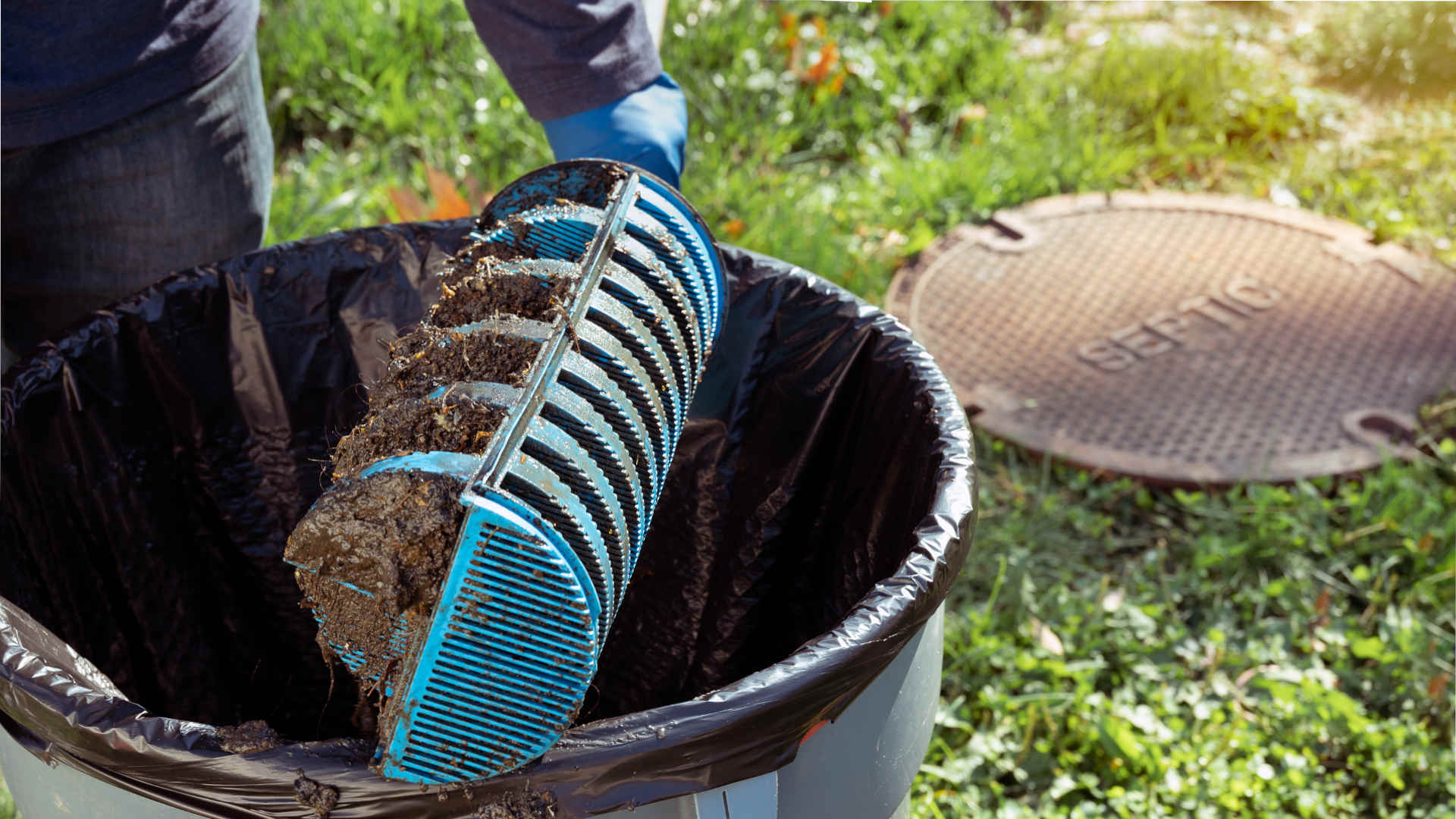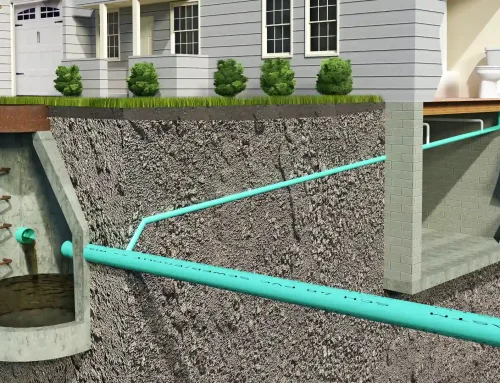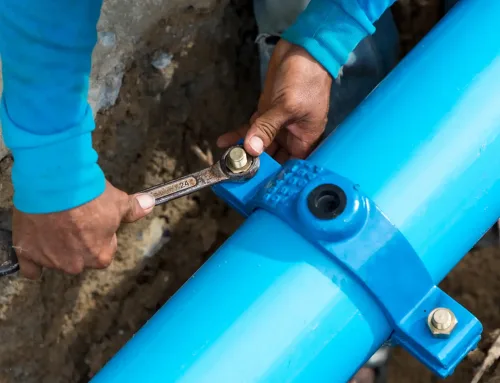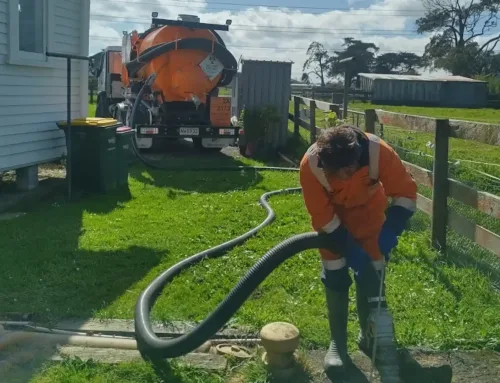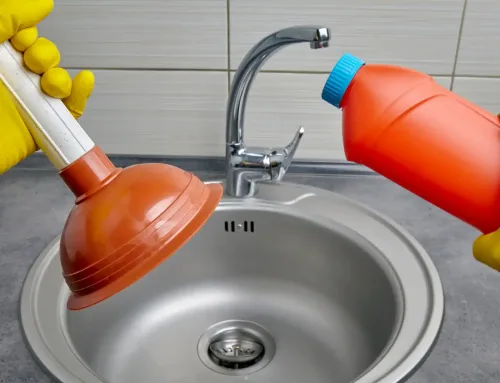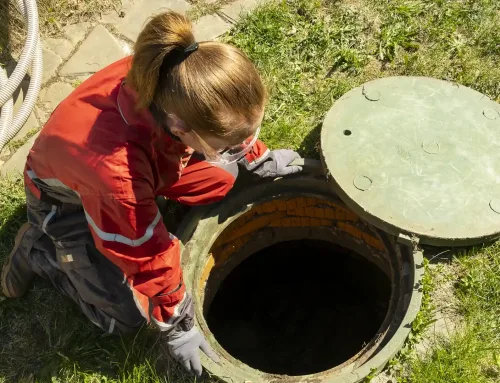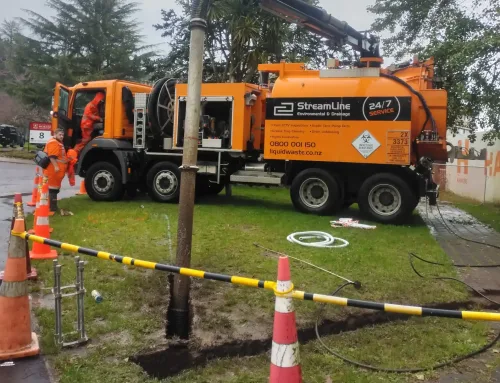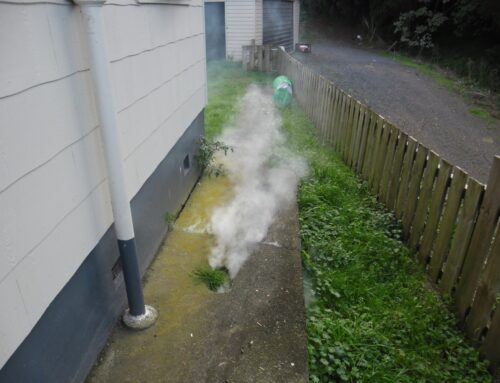What Are Septic Tank Filters & Are They Necessary?
Over the years, septic tank maintenance has evolved from completely responsive to quite preventative. Waste management companies do what they can to avoid potential problems, including encouraging our clients to install septic tank filters. Most septic tanks already have a filter installed, having changed over time to incorporate this component as a matter of convenience.
However, some septic tank systems don’t include a built-in filter, and some filters break. In either case, it’s up to the owner to decide if they want to go to the trouble of installing one.
In this article, we’ll review the purpose of a filter, whether it is necessary, and explore how your system might function without a filter installed. As we say in the biz, it’s time to get our hands dirty!
What is a septic tank filter?
First things first: what is a filter? Filters are an optional installation for your septic tank, allowing you to filter wastewater even further before it hits the drain field.
The drain field is the underground area wastewater moves through after it’s been “digested” inside the septic tank system. So, the more solid matter you can filter out of your wastewater before it hits this field, the better. The less solid matter that hits your drain field, the longer your field can drain contaminants and impurities out of the liquid effectively.
The filter usually sits on the outlet baffle of your system, as this is where the effluent leaves the tank. All the solid matter and particulates are kept inside the tank, giving them more time to ‘digest’ and become liquid.
Are septic tank filters necessary?
While most septic tanks already have exit filters installed, not all do! A filter—while a good investment for your system—is not necessary. The point of the filter is to improve the longevity of your drain field and keep your tank healthy for longer. Though many people choose not to have a filter installed, we usually recommend taking the smaller financial hit up front, as it can save you money long-term.
What happens if I don’t have a filter?
Without a filter, nothing stops the ‘undigested’ solid matter and particulates in your septic tank from making their way into your drain field. Over time, this will ‘clog’ your drain field. Think of it like a sponge. Sponges have a limited ability to absorb and dispel water, but if you soak a sponge first and then drop it into more water, it can’t take on any more water.
A clogged drain field doesn’t allow your wastewater to drain nearly as effectively, which can result in damage from a backed-up system. More commonly, you’ll need to clean or re-dig your field to regain its draining ability. Either way, not having a filter means you’ll need to call for septic tank maintenance more often, which can impact your wallet.
So, are septic tank filters necessary? Not technically, but they’re extremely helpful in helping your system last for as long as possible!
Don’t wait until it’s too late. Make sure your septic tank system is in good shape today.
Here at Streamline Environmental & Drainage, we like to get our hands dirty. We’re your local experts on everything to do with septic tank systems, and we’re always happy to help! If you’re unsure about your system needs or want to book your maintenance session to keep it in tip-top shape, contact our team to get started.
